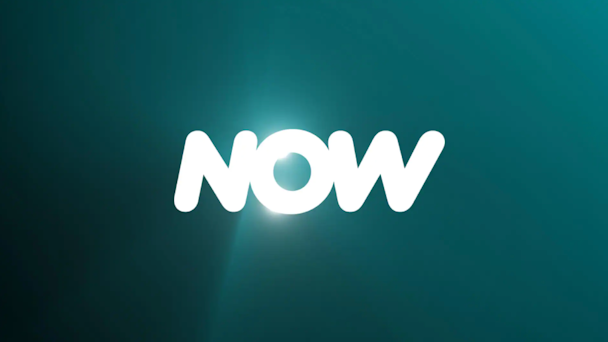One year after ditching ‘TV’ Now reflects on brand challenge
Last year Sky-owned streamer Now TV threw a curveball to audiences by rebranding to Now and refreshing its marketing plans to simplify its offering. The Drum caught up with Now’s director of brand, marketing and merchandising Jamie Schwartz, against a backdrop of industry-wide declines in new paid subscriptions.

How can Now retain its subscribers?
Launched in 2012, Sky’s over-the-top (OTT) service Now was conceived to compete with Lovefilm (bought by Amazon) and Netflix. 10 years and over 2 million UK subscribers later, Now has come a long way. It now offers multiple payment models, has partnered with a host of other content providers and boasts shows including Succession, Game of Thrones and Euphoria on its service.
“Launching a rebrand in a pandemic is never easy,” says the service’s director of brand, marketing and merchandising Jamie Schwartz, who joined Now just two months prior to the rebrand. Remaining agile was key, he says. “As marketers, we had to really flex as content slates shifted when some productions paused, and live sports matches were postponed.”
Along with dropping the TV from the title to refocus the brand and a new set of assets, the rebrand included a streamlined membership offering that provided flexible sports packages and the introduction of the HD ‘Boost’ tier, which blocks third-party ads.
The truncated identity refocuses the Now brand on a single word. The company says this leverages the power of three and removes unnecessary detail.
Marina Storti, managing director at Now, said at the time of the rebrand: “By moving from Now TV to Now, we marry our world-class quality with brilliant simplicity. This immediacy creates a true destination and community for those who love and live for the best entertainment.”
Schwartz declined to break down user data, but claims since the rebrand “Now has seen year-on-year growth, and our customers are staying longer and increasing the number of memberships they take from Now.”
As inflation bites and consumer appetite for cheaper streaming packages continues to grow, Schwartz believes Now’s multiple ad-supported and ad-free options will be appeal drivers for its prospect base. “It’s all about flexibility,” he says.
In 2021, Now rolled out third-party ads on a phased basis. “We did this to test capabilities but ensure we still deliver the best possible member viewing experience,” Schwartz says. While Schwartz’s didn’t disclose numbers, he did say the test had worked and third-party ads remain on the site.
Schwartz, like his fellow subscription video on demand (SVOD) marketers, will be grappling with how to attract new users against a backdrop of declining subscribers. Recent Kantar research revealed 215,000 fewer UK households took up a new subscription in Q1 2022 compared with the same period last year, and some 1.51 million canceled services – up from 1.04 million across the same time frame.
Now has seen growth in the first half of the year and, according to Kantar, is the top third most-taken-up service in the UK – with 11% share of new subscriptions above Netflix’s 9.4% but below Amazon and Disney, with 27.1% and 14.1% respectively.
Schwartz is using a broad multi-channel media mix at Now, working with a core group of media partners to promote its shows to prospective subscribers. Recent work includes the splashy campaign for the launch of Succession series three, which went heavy on out-of-home (OOH), Amazon Alexa activations and an integrated audio campaign with Global. Now’s marketing team has also experimented with Reddit audiences for the recent show Fear Index – getting Reddit users to share their biggest fears, with answers then dynamically inserted into outdoor advertising.
“Over the years, Now has evolved from a disruptive streaming startup to a significant player offering easy access to the world’s best entertainment. We’re living in a golden age of television right now with so much incredible TV competing for consumer attention, so brand building has never been so important,” Schwartz says.

